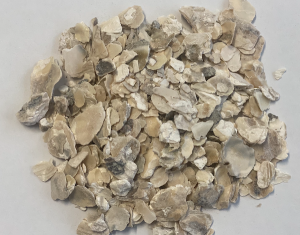Have a good sounded sleep is important to your physical and mental energy. Traditionally Chinese herbal medicine has been used to improve sleep for a few thousand years. Here are the list of 10 best Chinese herbs that are commonly used to promote better sleep.
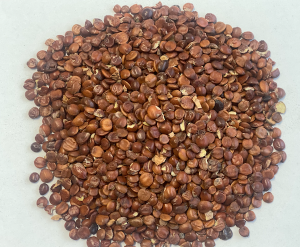
Suan Zao Ren
1. Suan Zao Ren (Sour Jujube Seed)
- Suan Zao Ren (酸枣仁), also known as Sour Jujube Seed, is the seed of the ziziphus jujuba plant. It is characterized by its sour taste and is commonly used in Traditional Chinese Medicine (TCM) to address various health issues, including insomnia and anxiety.
- Suan Zao Ren is believed to nourish the Heart and Liver, helping to calm the mind, alleviate irritability, and promote restful sleep. Its properties make it a popular choice for managing insomnia caused by emotional disturbances and restlessness.
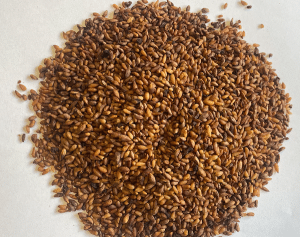
Bai Zi Ren
2. Bai Zi Ren (Biota Seed)
- Bai Zi Ren (柏子仁), also referred to as Biota Seed, is the seed of the Biota orientalis (L.) Endl. tree, which belongs to the cypress family. In Traditional Chinese Medicine (TCM), Bai Zi Ren is recognized for its sweet taste and neutral nature.
- It is often utilized to nourish the Heart and Liver, helping to calm the Spirit, alleviate anxiety, and promote sleep. With its ability to harmonize and tranquilize, Bai Zi Ren is commonly employed in addressing insomnia, particularly when associated with excessive thinking and emotional imbalances.
- It is also believed to have additional benefits, such as moisturizing the intestines and aiding in bowel movement.
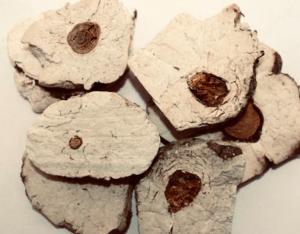
Fu Shen
3. Fu Shen (Poria with Wood)
- Fu Shen (茯神), also known as Poria with Wood, is a medicinal herb derived from the fungus Poria cocos that grows on pine tree roots.
- In Traditional Chinese Medicine (TCM), Fu Shen is characterized by its ability to calm the Spirit and settle the Heart. It is often used to address emotional disturbances, palpitations, and insomnia caused by an unsettled mind.
- With its tranquilizing properties, Fu Shen is believed to help soothe irritability, alleviate excessive worry, and promote restful sleep. It is commonly incorporated into herbal formulas aimed at treating conditions involving the Shen (mind) and emotions.
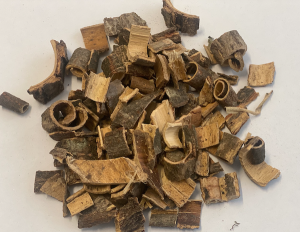
He Huan Pi
4. He Huan Pi (Albizia Bark)
- He Huan Pi is believed to soothe the Liver Qi and calm the Spirit. It’s often used for insomnia caused by emotional disturbances or irritability.
- He Huan Pi (合欢皮), also referred to as Albizia Bark, is derived from the bark of the Albizia julibrissin tree. In Traditional Chinese Medicine (TCM), He Huan Pi is recognized for its ability to soothe the Liver Qi and calm the Spirit. This herb is often used to address emotional imbalances, irritability, and insomnia resulting from emotional disturbances. He Huan Pi is believed to have a harmonizing effect on the Heart and Liver, helping to alleviate mood swings, emotional tension, and restlessness. Its calming properties make it a valuable ingredient in formulas aimed at promoting emotional well-being and facilitating relaxation.
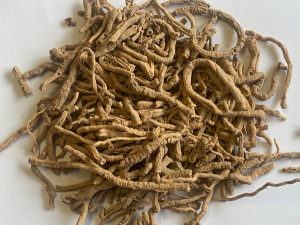
Yuan Zhi
5. Yuan Zhi (Polygala Root)
- Yuan Zhi is thought to calm the Heart and Spirit, and it’s used for insomnia linked to restlessness and palpitations.
- Yuan Zhi (远志), also known as Polygala Root, is a medicinal herb derived from the root of the Polygala tenuifolia plant. In Traditional Chinese Medicine (TCM), Yuan Zhi is characterized by its ability to calm the Heart and Spirit. This herb is often used to address restlessness, palpitations, and insomnia caused by an agitated mind. Yuan Zhi is believed to have a tranquilizing effect, helping to alleviate emotional distress, ease anxiety, and promote a sense of emotional stability. With its properties in harmonizing the Heart and calming the Shen (mind), Yuan Zhi is commonly included in formulations intended to support emotional balance and enhance sleep quality.
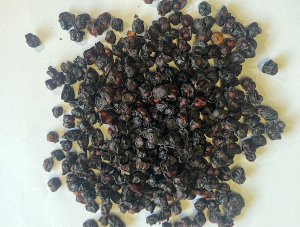
Wu Wei Zi
6. Wu Wei Zi (Schisandra Berry)
- Wu Wei Zi is believed to calm the Spirit and generate fluids. It can be helpful for insomnia due to anxiety and Heart Yin deficiency.
- Wu Wei Zi (五味子), also known as Schisandra Berry, is a medicinal herb derived from the Schisandra chinensis plant. In Traditional Chinese Medicine (TCM), Wu Wei Zi is recognized for its unique five flavors: sour, sweet, salty, bitter, and pungent. This herb is often used to tonify the Kidney and nourish the Heart, helping to calm the Spirit and promote mental clarity. Wu Wei Zi is believed to have adaptogenic properties, assisting the body in adapting to stress and reducing the impact of stress-induced insomnia and anxiety. With its capacity to generate fluids and harmonize Yin and Yang, Wu Wei Zi is frequently included in formulas aimed at addressing both physical and emotional aspects of sleep disorders.
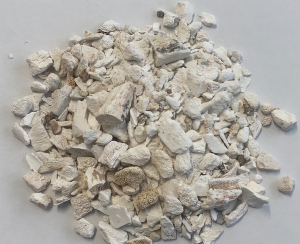
Long Gu
7. Long Gu (Dragon Bone)
- Long Gu is fossilised bone, often from large animals. Long Gu is characterized by its ability to anchor the Spirit and calm the Heart. It is often used to address restlessness, palpitations, and insomnia caused by an unsettled mind. Long Gu is believed to help contain excessive emotional energy and provide a sense of stability.
8. Mu Li (Oyster Shell)
- Mu Li is the shell of oysters. Mu Li is recognised for its ability to settle the Heart and calm the Spirit. Similar to Long Gu, Mu Li is used to address emotional disturbances, irritability, and insomnia. It is believed to have a tranquilising effect on the Shen (mind) and Heart, helping to alleviate anxiety, excessive worrying and emotional turbulence.
Mu Li
- Long Gu and Mu Li are often used together to anchor the Spirit and calm the Heart. They’re used for insomnia with restlessness and palpitations.
- These substances are commonly used together in herbal formulas to enhance their calming properties. Long Gu and Mu Li are often prescribed for individuals experiencing restlessness, anxiety, and insomnia with palpitations. They are valued components in TCM formulas intended to harmonise and stabilise the Spirit, promoting a sense of tranquility and better sleep quality.
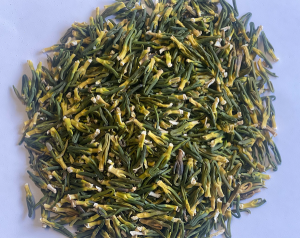
Lian Xin
9. Lian Xin (Lotus Plumule)
“Lian Xin” (莲心) or Lotus Plumule refers to the sprouted part of the lotus seed. In Traditional Chinese Medicine (TCM), it is believed to have various health functions, including:
- Soothing the Mind: Lotus Plumule is thought to have a calming effect on the mind and can be used to alleviate restlessness, anxiety, and insomnia.
- Nourishing the Heart: It is believed to nourish the Heart and promote emotional well-being.
- Promoting Digestion: Lotus Plumule is also said to aid in digestion and help with issues related to the digestive system.
- Clearing Heat: In TCM terms, it has properties that help clear excess heat from the body.
- Detoxification: Lotus Plumule is sometimes used for its potential detoxifying effects.
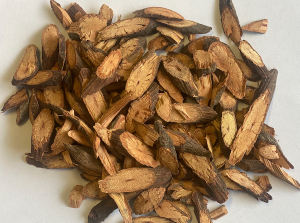
Ye Jiao Teng
10. Ye Jiao Teng (Caulis Polygoni Multiflori or Polygonum multiflorum vine)
- Nourishing the Heart and Calming the Mind: Ye Jiao Teng is believed to have properties that nourish the Heart and soothe the mind. It may help alleviate restlessness in sleep and promote a sense of calm.
Please note that while these Chinese herbal medicine have been used traditionally for their potential benefits, their effectiveness and safety may vary from person to person. Always consult a healthcare professional before using any herbal remedies, especially if you have underlying health conditions or are taking medications.
Reference
- Chinese Herbal Medicine Materia Medica, 3rd Edition, by Dan Bensky and Andrew Gamble.
Disclaimer: Individual responses to herbs may vary. Consultation with a qualified TCM practitioner is recommended to determine the most suitable herbs and formulations based on individual health conditions. This information is for educational purposes and does not replace professional medical advice.

